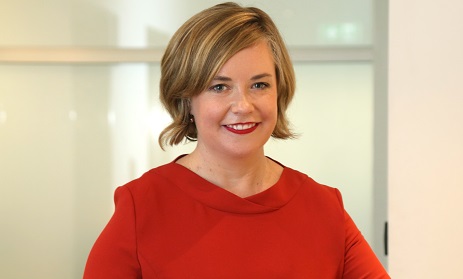I was thrilled to see the name of Fay Miller in the list of serving and former local government officials recognised in this week’s Australia Day Honours list.
Fay was Mayor of Katherine Town Council from 2012 until her forced retirement last September because of ill health – and in that time she exemplified the energy, empathy, and commitment that elected officials bring to their tasks.
During her time in elected local government (beginning in 2003) she was a wonderful champion for Katherine, particularly around 2017 when it emerged the town’s water supply and bores had been contaminated by PFAS run-off from the Tindal RAAF base.
Fay was tireless in highlighting the need for remediation and for affected townspeople to be recognised and compensated if necessary, and I congratulate her on her appointment as a Member of the Order of Australia (AM) for “significant service to local government, tourism, and the community of Katherine”.
Congratulations also to those other individuals awarded AMs and OAMs for their contributions to local government, including Bernadette Black (Kingborough Council, Tas), John Jobling (Leichardt Council, NSW), Kym Callaghan (District Council of Elliston, SA), Pat Chigwidden (City of Victor Harbor, SA), Frank Holohan (Dandenong City Council, Vic), John Kearns (Lithgow City Council, NSW), Terry Larkins (Gisborne Shire Council, Vic), Leslie Parsons (Inverell Shire Council, NSW), Bob Sloane (Barossa Valley Council, SA) and Paul Talbot (Corowa Shire Council, now Federation Council, NSW).
Given the extent to which local government rallied to support communities affected by the Black Summer Bushfires, it was also pleasing to see that two local council officials, Lew Bezzina (Lithgow City Council) and Cameron MacLachlan (Glenn Innes Severn Council) were awarded Public Service Medals on Australia Day for their “outstanding public. particularly during the emergency response to the 2019-20 bushfires”.
Apropos of bushfires, we are again being told by scientists and researchers that extreme heat and droughts are increasing the likelihood of further devastating natural disaster events.
A new report from the Climate Council finds the cost of extreme weather in Australia has more than doubled since the 1970s, with the bill for the past decade reaching $35 billion. By 2038, extreme weather events driven by climate change, as well as the impacts of sea-level rise, could cost the Australian economy $100 billion every year.
There is renewed activity at the federal government level: Environment Minister Sussan Ley has advised that the National Climate Resilience and Adaptation Strategy first released in 2015 is being refreshed for release in the second half of 2021.
A standing national resilience relief and recovery agency – a recommendation of the bushfire royal commission – will be established by July, and there is some optimism the Federal Government might strengthen Australia’s international commitment to reducing greenhouse gas emissions.
Councils have been highly effective in developing and implementing strategies for climate adaptation, resilience, energy efficiency and emissions reductions – on their own or in partnership with other local governments or organisations like the Climate Council.
In fact, they have punched far above their weight, impelled in many cases by the wishes of their local communities for meaningful action.
Cities and towns are at the heart of efforts to achieve the overall aim of limiting global warming to less than two degrees Celsius. After all, 76 percent of carbon dioxide emissions are produced in major urban areas, and cities account for 75 percent of energy use worldwide.
So local and regional actions – particularly through good urban design, planning for vulnerable communities, urban governance, and the quality of the public realm – are all critical to supporting and driving national strategies.
I am proud to say that my City of Sydney Council has committed to ambitious targets for renewable energy use, reducing greenhouse gas emissions, tree plantings, and for cool shared spaces to mitigate the impacts of global warming.
Many other councils doing equally impressive things to alleviate sea-level change, urban heat, and extreme events.
I expect that to continue regardless of what happens nationally because we are on the front line of climate change impacts.
Councils see, feel, and understand the social and economic implications – and by involving our local communities directly, we can facilitate effective action.
Linda Scott,
ALGA President



